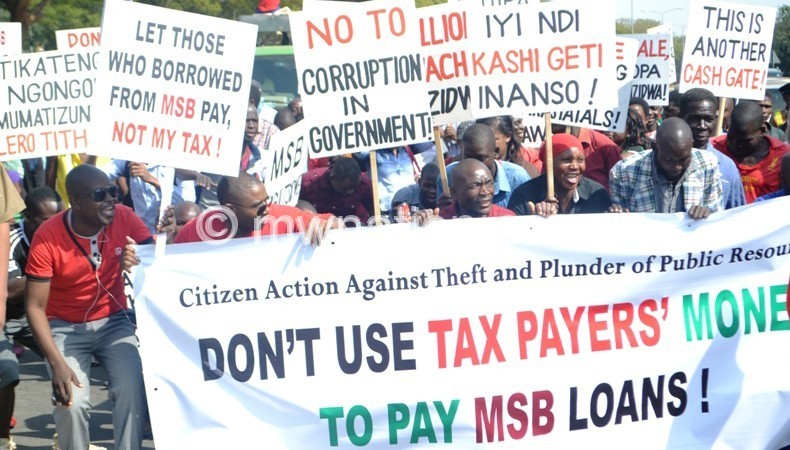Public and private ownership of business
The confrontation between the Executive and the Legislature regarding the impending fate of Malawi Savings Bank (MSB) has attained fever pitch. It seems both government and opposition sides are in a state of panic. They ought to handle the matter with utmost care because the consequences of errors and omissions would be too high.
More than once the Minister of Finance, Economic Planning and Development has argued that the idea of selling MSB originated with the perpetually faulted People’s Party (PP) administration, way back to 2013. In view of the several occasions at which the current DPP government has reversed the contracts, decisions, promotions and appointments made by its predecessor, are we to believe that this is a sufficient ground for it to go ahead with the sale.

Is privatising MSB the only possible remedy? During the financial meltdown in North America and Europe, including Britain, a number of financial institutions were found to be in the state of insolvency just like MSB. The case in point was the Royal Bank of Scotland (RBS). The British government took strenuous measures and brought the bank to normality. Very likely, this action advanced the cause of those who wanted Scotland to remain part of the United Kingdom.
Has the government sought advice from advisers other than its own employees? The MSB is no ordinary enterprise to be auctioned to the highest bidder without due regard to all the stakeholders, mostly the silent majority.
Before going further, let us remind ourselves of how and why a government may own income-generating enterprises and why it may sell what it owns. Certain sectors of the economy though vital do not attract private capital. A government may decide to form a firm to provide the service. This is the history of the Post Office Savings Bank (POSB), the predecessor of MSB. The POSB origins date to the early days of the Nyasaland protectorate, which was set up in May 1891.
The mission of POSB was to provide postal bank services wherever the Post Office had branches. This means all over the country. This is the inherited mission of MSB. It is rendering banking services where a private commercial bank would not be willing to go. The chances are that if MSB is privatised wholly, it will close some of its branches. People in remote areas will suffer.

Nationalisation was undertaken mostly by government with socialist ideology. The socialists believe that major industries should not just be concerned with profit maximisation but need of the public such as full employment, lower prices and availability of services even where the services were not profitable.
A private monopoly was nationalised to control its monopoly powers. A monopoly produces fewer goods to keep prices high. Once nationalised, it is compelled to maximise production to meet the needs of the people. For example, a transport company has to open new branches in remote areas.
Private companies came about when those with saving approached the registrar of business or companies and started the business. The aim of the company was to earn as much profit as possible. To do so, the comp any did not always exploit the public. To earn more, it has to render satisfactory services otherwise it will lose customers.
A company formerly owned by government was sold to a private company for several reasons. Under State ownership it must have been making losses due to poor management and excessive staffing. The idea was that as a private company, the chief executive would work harder knowing that if the company continued to make losses, the board of director would dismiss them once privatised. There would be no political interference in the company.
Many State companies perform poorly or fall into difficulties because minister staff them with political party favourites. In case of a bank, they compel it to give loans even to those who are unable to use the loans profitably.
In Malawi, president Hastings Kamuzu Banda established the Commercial Bank of Malawi (CBM), which was being directed to give loans to MCP leaders to open estates. Many of the loans were toxic. The government had to sell the Commercial Bank to Standard Bank.





